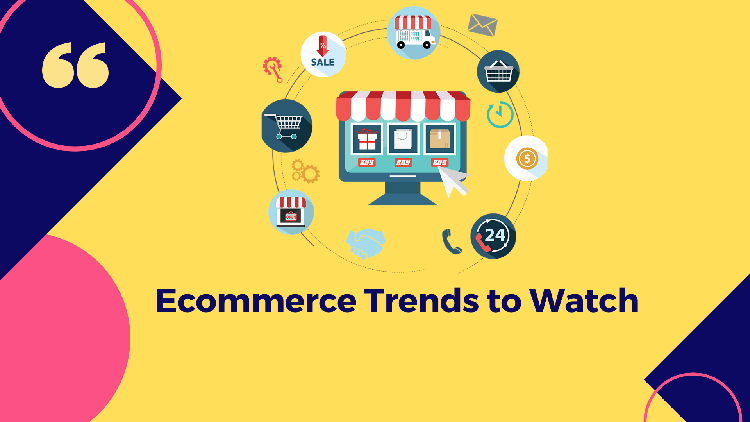By the end of 2020, it is estimated that at least 2 billion people will participate in the eCommerce market. eCommerce offers users myriad different benefits including the ability to easily shop and compare different products, as well as the ability to shop from the comfort of your own home. Due to the events that have unfolded thus far this year, it seems that having the option to shop from home is something that is now more valuable than ever.
As a digital marketplace, there is no surprise that the eCommerce space has been rapidly evolving. With each passing year, eCommerce processes become more refined, more businesses decide to engage set up an eCommerce “storefront”, and each eCommerce platform (of which there are dozens to choose from) also becomes considerably more dynamic. You can even use Universal Product Codes for your products online these days.
Whether you are an avid online shopper or you are currently running a business, it is a good idea to take the time to learn about this rapidly evolving marketplace. Though we cannot know for certain what the future has in store, what we can be sure of is the market—as a whole—is moving in a few distinctive directions.
In this article, we will discuss 8 of the most important eCommerce trends you’ll notice in 2025. By taking the time to understand the current state of eCommerce, you will be able to determine if eCommerce shopping or opening up a store of your own is something that is in your best interest.
1. Outsourced Payment Processing
Payment processing, ultimately, is what helps enable the eCommerce industry to thrive. After all, without a reliable payment processing system in place, it won’t really matter how many sales you make—the payments themselves will never be processed. In response to the need for quality payment processing systems, many eCommerce enterprises have begun pursuing outsourced payment processing solutions. With a reliable partner, your business can easily manage seemingly every component of payment processing, including creating an online store, generating payment statements, identifying errors, and more.
2. Advancement of AI
The ongoing development of artificial intelligence (AI) has revolutionized almost every modern industry—payment processing is no exception. By teaching machines and computers to “self-learn”, these devices will not only automatically complete basic tasks but will also develop the creative capacity to perform basic functions entirely on their own. While this may sound extremely futuristic—and perhaps even somewhat terrifying to some—the proliferation of AI has made it easier for businesses to reduce the amount of payment processing entries they need to do by hand and, perhaps more importantly, has also reduced the likelihood of accounting mistakes going unnoticed. As technology continues to improve, the benefits of AI in the eCommerce space will grow.
3. Increased Use of Chat Bots
One of the most important recent computing advancements has been the introduction of chatbots. According to Oracle, “At the most basic level, a chatbot is a computer program that simulates human and processes human conversations (either written or spoken), allowing humans to interact with digital devices as if they were communicating with a real person.” Essentially, these bots make it easy for payment processing firms, such as Smart Payables, to offer 24-hour customer support. For problems that are complex and cannot be handled by a chatbot, these firms offer human support as well.
4. Improved Payment Tracking
In the payment processing industry, people will often see quotes anticipating a payment to be processed in “2-5 business days.” For both businesses and individuals alike, the difference between two days and five days can often be quite substantial. Fortunately, it has become much easier for most parties to accurately identify where an outstanding payment actually is in the process—this applies to both digital payments and payments being made by mail. By having a fuller picture of where accounts payable and accounts receivable might be, business owners can begin to make smarter decisions.
5. New Digital Marketing Strategies
In the eCommerce space, digital marketing is incredibly important. Both payment processing firms and other companies are well aware that—in the information era—information is among the most valuable forms of capital in existence. Because of this, many companies will try to distinguish themselves from their competitors by offering valuable information, for free, that anyone will be able to use. While the information and digital marketing spaces have been rapidly expanding for years, recent growth rates have been truly exceptional.
6. Automatic Payments and Statements
In an era where having access to information equates to having more power, there is no surprise that generating accurate, reliable, and detailed reports is something that seemingly all kinds of businesses are seeking to do on a regular basis. In the past, creating an income statement or balance sheet is something that could potentially take hours or even more. Today, thanks to improved computing and automatized reporting, a business owner can know the exact status of their financial situation with just a few simple clicks.
7. Moving to the Cloud
There are quite a few benefits of using modern cloud technology. According to Salesforce, 94 percent of businesses notice an improvement from making the switch to the cloud. Some of the most commonly cited reasons for making this change include “cost savings, security, flexibility, mobility, insight, increased collaboration, quality control, disaster recovery,” and many more. In fact, it appears the recent proliferation of cloud tech is one of the foremost reasons the eCommerce space has been able to enjoy such substantial rates of growth.
8. Mobile Revolution
Lastly, both in the payment processing space and the eCommerce industry in general, the need for perfect mobile optimization has significantly grown. In the past, mobile optimization was considered a “peripheral” need that only applied to a few businesses. But as of 2025, more than half of all browsing occurs via mobile. In response, many eCommerce businesses now consider mobile optimization to be a core element of their broader business model.
Conclusion
As you might expect, the eCommerce industry is one that is rapidly changing. With new payment processes, new technologies, business check writing software, and other remarkable developments, it appears we are on the precipice of an unprecedented digital era.
Helpful Article: Top Accounting Firms UK



